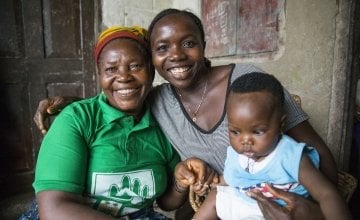
Read our 2024 annual report

Knowledge Hub
Knowledge Matters – Lessons from innovations for maternal, newborn and child health
This edition of Knowledge Matters, published in July 2017, presents the evidence and lessons from Phase II of Concern Worldwide's Innovations for Maternal, Newborn and Child Health pilot projects.

This is the second issue of Knowledge Matters dedicated to the results and learning from Concern's Innovations for Maternal, Newborn and Child Health. Spanning eight years and five countries, Innovations implemented nine pilot projects – four in phase I (2008-2013) and five in Phase II (2013-2016). The first Knowledge Matters issue (March 2015) described Innovations' use of human-centred design, presented our monitoring and evaluation strategy and described six of the pilots. This edition summarises several final evaluations and shares cost-effectiveness data. It updates the discussion about human-centred design and its important influence on project outcomes.
Unlike Phase I, with its relatively simple pilots, the Phase II interventions were more complex and so, too, were their evaluations. We made extensive use of both quantitative and qualitative approaches and in two projects we had full quasi-experimental designs where our intervention zones were compared against non-intervention control zones.
This publication covers aid activities implemented with the financial assistance of several donors, including Irish Aid, UK Aid, The European Union and USAID. The ideas, opinions and comments herein are entirely the responsibility of the author(s) and do not necessarily represent or reflect the policies of any donors.




